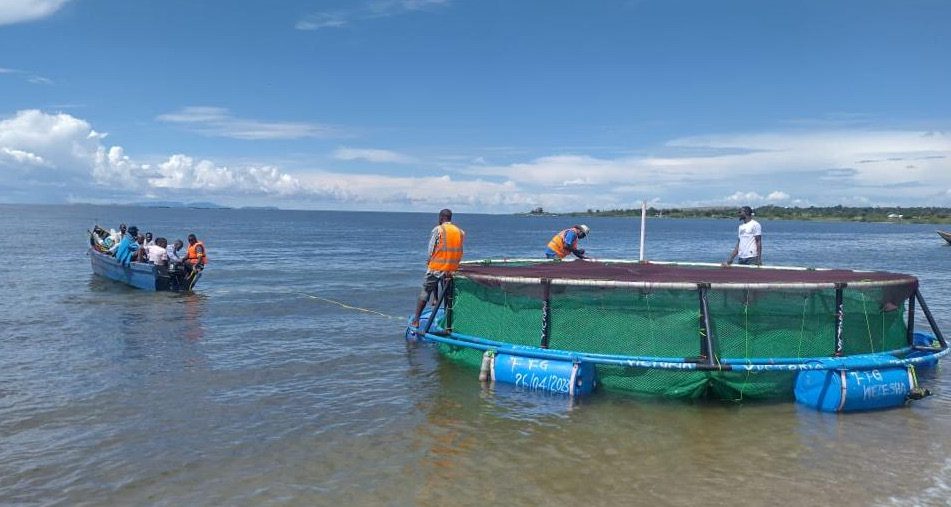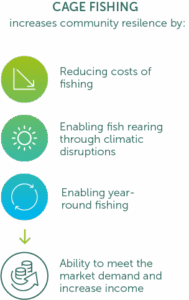TECA – Lake Victoria’s aquaculture projects bring hope to fishing communities



Climate change is increasingly impacting livelihoods in Africa, affecting production, disrupting markets and increasing the cost of running businesses. Worldwide, it leads to devastating droughts, ecosystems destabilisation in water bodies and the emergence and re-emergence of pests and diseases for human and animal health.
Lake Victoria, Africa’s largest freshwater lake, sustains a thriving blue economy, employing over 200,000 people and providing a livelihood for half a million individuals in Kenya, Tanzania, and Uganda. However, climate change, pollution, invasive species, declining fish stocks, and water inlet interference have threatened the lake’s potential.
Wezesha Aqua Farms, one of these ventures, collaborates with fishing communities near Mwanza, Tanzania, to develop solutions for increased resilience and ensure the fishing community can fish year-round and meet the growing demand.
The fishing industry is quite vibrant. We reach many other countries in East Africa as well as abroad. However, we have observed the amount of fish has drastically declined. Now, with cage farming, we reduce the costs of fishing and marketing as we can offload all the fish from the cage. Cage farming also enables us to tackle illegal fishing as we can provide security to the cages. We plan to invest as a cooperative in cages to reduce the shortage of fish stocks. We can already see where this is going in terms of impact at this ‘proof of concept’ stage.”
Erasto Lameck Balosha, Chairman of the Victoria Blue Cooperative Mwanza
Climate change has caused fish to migrate to deeper lake areas, requiring the fishing community to dive deeper to get enough stocks for their business. However, with cage farming, the community can stock and rear their fish through climatic disruptions.
Working with Victoria Blue Cooperative Society – a group of eight cooperatives composed of over 200 fishermen, fish traders and fish value additional experts – the initiative supported the traders on a pilot basis to prove the concept’s viability through fish cage aquaculture.
Wezesha Aqua Farm observed insufficient capital and goodwill to develop a cage farming concept to supplement the fisheries industry. To solve this, the project has piloted fish cage aquaculture, providing the community with cages capable of hosting 25,000 tilapia fish under a pay-as-you-use or lease model. The community pays monthly for the cage and fish feed, with the remainder expected after the final harvest in the seventh month.
The locally assembled cages cost approximately 8.5 million Tanzanian Shillings (USD 3,500) and align with the Tanzanian government’s strategy to promote the blue economy. The fish industry contributes 1.7% to GDP and employs thousands in fishing and aquaculture. Initial assessments indicate the project’s success in convincing the community of the value of aquaculture investments, with increasing interest, particularly among women, to rear their own stock.
Initial assessments indicate that the project has successfully conveyed the significance of aquaculture investments to the lake’s surrounding communities. Additionally, there has been a notable increase in demand among women who wish to engage in fish rearing themselves.